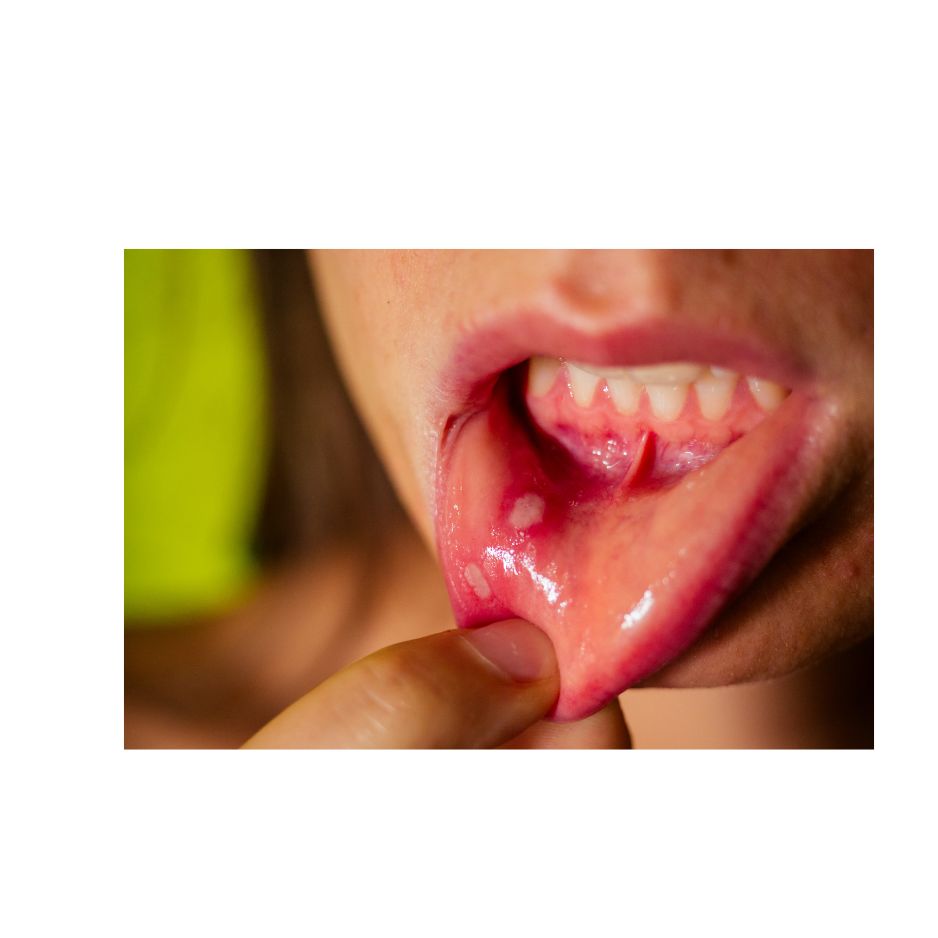
Stomatitis is a general term for inflammation within the mouth. It can affect the cheeks, gums, tongue, lips, and roof or floor of the mouth. Symptoms typically include redness, swelling, pain, and sometimes ulcers or sores. There are various types of stomatitis, including:
TYPES OF STOMATITES.
Aphthous stomatitis (canker sores): Small, painful ulcers inside the mouth.
Herpetic stomatitis (cold sores): Caused by the herpes simplex virus, often on the lips and sometimes inside the mouth.
Denture stomatitis: Inflammation of the mouth tissues under a denture.
Allergic stomatitis: Caused by allergic reactions to substances like certain foods, medications, or dental materials.
CAUSES OF STOMATITES.
Stomatitis can be caused by a variety of factors, including:
- Infections:
- Viral: Herpes simplex virus, coxsackievirus, and other viral infections.
- Bacterial: Bacterial infections due to poor oral hygiene or periodontal disease.
- Fungal: Candida infections, particularly in individuals with compromised immune systems or those using dentures.
- Injuries:
- Biting the cheek or tongue.
- Sharp edges from broken teeth or dental appliances.
- Burns from hot foods or drinks.
- Allergic Reactions:
- To certain foods, medications, or dental materials.
- Irritants:
- Tobacco, alcohol, and spicy or acidic foods.
- Nutritional Deficiencies:
- Deficiencies in vitamins (especially B vitamins), iron, and other essential nutrients.
- Medical Conditions:
- Autoimmune diseases (e.g., lupus, Behçet’s disease).
- Systemic illnesses (e.g., Crohn’s disease, celiac disease).
- Blood disorders (e.g., leukemia).
- Medications and Treatments:
- Certain medications, like chemotherapy drugs.
- Radiation therapy to the head and neck.
- Hormonal Changes:
- Hormonal fluctuations, particularly in women during pregnancy, menstruation, or menopause.
Identifying the underlying cause is essential for effective treatment and management of stomatitis.
HOW TO PREVENT STOMATITES WITH HOME REMEDIES.
Preventing stomatitis with home remedies involves maintaining good oral hygiene and avoiding factors that can trigger inflammation. Here are some tips:
- Maintain Good Oral Hygiene:
- Brush your teeth at least twice a day with a soft-bristled toothbrush.
- Floss daily to remove food particles and plaque between teeth.
- Use an antiseptic mouthwash to reduce bacteria.
- Dietary Changes:
- Avoid spicy, acidic, or rough-textured foods that can irritate the mouth.
- Eat a balanced diet rich in vitamins and minerals, especially B vitamins, iron, and folate.
- Stay hydrated by drinking plenty of water.
- Avoid Irritants:
- Reduce or eliminate the use of tobacco and alcohol.
- Avoid foods and beverages that are too hot.
- Manage Stress:
- Practice stress-reducing techniques such as yoga, meditation, or deep-breathing exercises, as stress can trigger outbreaks of stomatitis, particularly aphthous ulcers.
- Use Protective Measures:
- If you wear dentures, make sure they fit well and clean them regularly.
- Use a mouth guard if you grind your teeth.
- Natural Remedies:
- Saltwater Rinse: Gargle with a solution of saltwater (1/2 teaspoon of salt in a cup of warm water) to help reduce inflammation and promote healing.
- Baking Soda Rinse: Mix 1 teaspoon of baking soda in a cup of water and rinse your mouth to neutralize acids.
- Aloe Vera Gel: Apply aloe vera gel directly to the sores to soothe and promote healing.
- Honey: Applying honey to the affected areas can provide relief due to its antibacterial and healing properties.
- Chamomile Tea: Rinse your mouth with cooled chamomile tea to reduce pain and inflammation.
- Supplements:
- Consider taking supplements if you have deficiencies, particularly in B vitamins, iron, or folate, after consulting with a healthcare provider.
If stomatitis persists or worsens despite these measures, it’s important to seek medical advice, as there may be an underlying condition that requires treatment.
WHAT IS HOME REMEDIES FOR STOMATITES ?
Home remedies for stomatitis can help alleviate symptoms and promote healing. Here are some effective options:
- Saltwater Rinse:
- Mix 1/2 teaspoon of salt in a cup of warm water.
- Rinse your mouth with the solution several times a day to reduce inflammation and promote healing.
- Baking Soda Rinse:
- Mix 1 teaspoon of baking soda in a cup of water.
- Rinse your mouth with this solution to neutralize acids and soothe the affected area.
- Honey:
- Apply a small amount of honey directly to the sores. Honey has antibacterial and healing properties.
- Aloe Vera Gel:
- Apply pure aloe vera gel to the sores to soothe irritation and promote healing.
- Chamomile Tea:
- Brew chamomile tea and let it cool.
- Use the cooled tea as a mouth rinse or apply a chamomile tea bag directly to the sores.
- Coconut Oil:
- Apply a small amount of coconut oil to the sores. Its antimicrobial properties can help reduce infection and inflammation.
- Yogurt:
- Eat plain, unsweetened yogurt with live probiotic cultures to promote a healthy balance of bacteria in the mouth.
- Ice Chips:
- Suck on ice chips or apply an ice pack to the outside of your mouth to numb the pain and reduce inflammation.
- Hydrogen Peroxide Rinse:
- Mix equal parts hydrogen peroxide and water.
- Rinse your mouth with this solution, but do not swallow it. This can help clean the sores and promote healing.
- Licorice Root:
- Chew on licorice root or use a licorice root extract as a mouth rinse. It has anti-inflammatory and soothing properties.
- Vitamin and Mineral Supplements:
- If you have deficiencies in vitamins (especially B vitamins), iron, or folate, consider taking supplements after consulting with a healthcare provider.
- Avoid Irritants:
- Avoid spicy, acidic, or rough-textured foods that can irritate the sores.
- Reduce or eliminate tobacco and alcohol use.
Implementing these remedies can help manage the symptoms of stomatitis and promote faster healing. If symptoms persist or worsen, it is important to seek medical advice.
TOP 10 HOMEOPETHY MEDICINE FOR STOMATITES .
Homeopathy offers various remedies that can be tailored to individual symptoms and conditions. Here are ten commonly used homeopathic medicines for stomatitis:
- Boric Acid: Often used for ulcers with a white or yellowish base, accompanied by a burning sensation.
- Mercurius Solubilis: Useful for ulcers with excessive salivation, bad breath, and a metallic taste in the mouth.
- Natrum Muriaticum: Indicated for ulcers that are small, painful, and often appear in the inner cheek or lips, usually worse with salty foods.
- Sulphur: Effective for recurring mouth ulcers that are red, inflamed, and painful, often accompanied by a burning sensation.
- Arsenicum Album: Recommended for ulcers that are very painful, with burning sensations that improve with warm drinks and worsen at night.
- Borax: Used for ulcers that bleed easily, are very painful, and are often located on the inner cheeks and tongue.
- Kali Bichromicum: Suitable for deep, punched-out ulcers with a yellowish base, often associated with a thick, stringy discharge.
- Nux Vomica: Helpful for ulcers caused by stress, excessive alcohol, or spicy food consumption, often accompanied by digestive issues.
- Lachesis: Effective for ulcers that are bluish or purplish in color, with a tendency to bleed and a burning or throbbing pain.
- Thuja: Used for white patches or ulcers in the mouth, particularly those associated with a fungal infection.
Note: Homeopathic remedies should be selected based on a comprehensive evaluation of the individual’s symptoms, including physical, emotional, and mental aspects. It is recommended to consult with a qualified homeopathic practitioner for personalized treatment and proper dosage.

































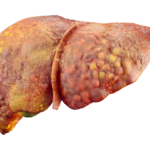
























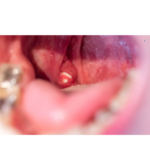










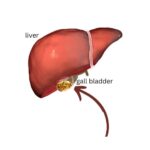










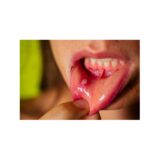
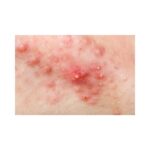





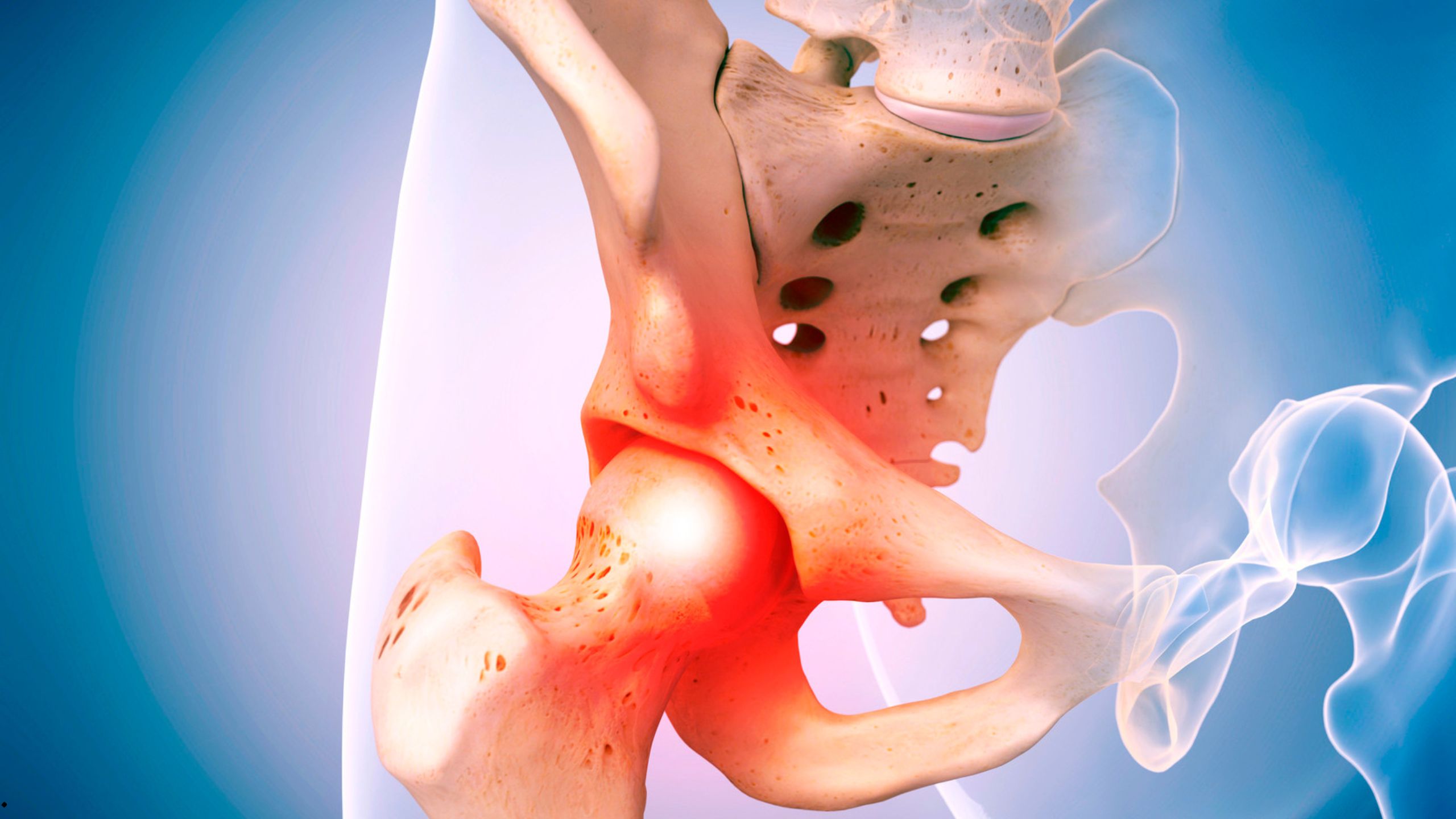
Got rid of Hsv,, with this antibiotics.. 🌿🌿…🌿🌿…🌿🌿…
Genuine products, Really good
Very efficient and reliable.
I would like to thnkx for the efforts you’ve put in writing this blog. I am hoping the same high-grade blog post from you in the upcoming as well. Actually your creative writing skills has encouraged me to get my own web site now. Actually the blogging is spreading its wings rapidly. Your write up is a great example of it.